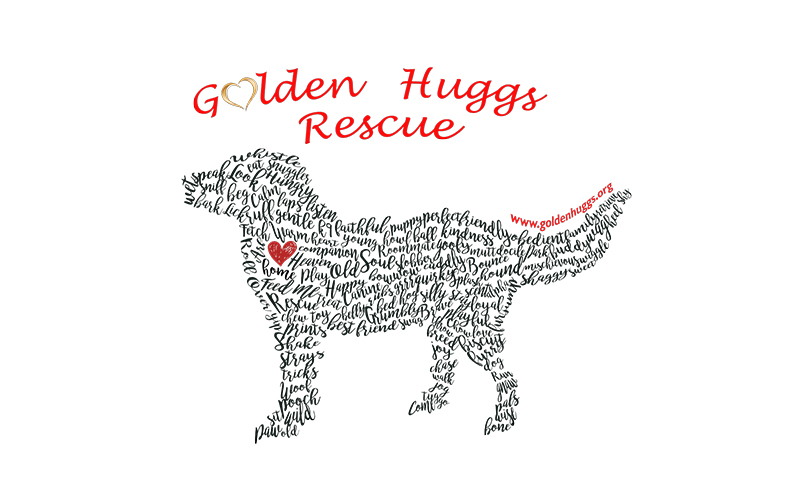Brigitte Ritchie, Waitsfield, founded Golden Huggs Rescue in 2017 but she’d been working on rescuing golden retrievers, and dogs with retriever personalities well before that. Ritchie was diagnosed with cancer 21 years ago and while undergoing treatment, had a co-worker who had a five-organ transplant.
That co-worker came to work one day with a brand-new Acura and reported that he’d given himself the car as a gift for getting through the transplant.
“When I told my husband that story, he asked me what I wanted to do. I told him I wanted to rescue golden retrievers,” she said.
After trying to rescue a golden retriever for her family and being denied because she had a 2-year-old son and no fenced-in yard she contacted Yankee Golden Retriever Rescue and ultimately found a three-legged golden in Louisiana
That three-legged dog, Rusty became the flagship dog for what is now Golden Huggs Rescue and she became friends with the Yankee Golden Retriever Rescue coordinator Tammy Brinkley.
BIG PROBLEM
“We knew there was a big problem in the South, with goldens in kill shelters. We went to Tennessee and toured shelters and were horrified by what we saw. We decided to start by rescuing goldens in kill shelters,” Ritchie recalled.
She now has a team of volunteers working with her on rescuing, spread all over New England.
“I’ve learned the hard way that some of the people you work with in the South are not always telling the truth, so the dogs that came up here were not vetted properly. Over the years I’ve whittled it down to two to three people I work with. The dogs we bring up go into foster homes here in New England. I’m licensed everywhere I work and the dogs we transport have health certificates that allow them to cross state lines,” Ritchie explained.
She and her team take golden retriever mixes, lab mixes and dogs with golden personalities, she said. They treat dogs for heart worm - if they have it - before bringing them north. They have a behavioralist available by phone to help at all times and have vets throughout Vermont who help them.
“We’re often dealing with goldens who have come from a breeder somewhere in the South, Mississippi, Louisiana and Arkansas. Females used for breeding are not comfortable around people. They are not aggressive. They’re scared and don’t trust,” Ritchie said.
She and her team spend a lot of time and energy finding the right homes for each dog’s personality and needs.
“When we bring dogs north, we try to get their bios and descriptions correct so that people understand the dog’s needs. When people want to adopt, they get the chance to have a pajama party. They apply, we interview them and do an in-home visit. If we agree it will be a good fit, they get to take the dog from its foster-home for a week to see how it goes. If they need another week to be sure, that’s fine,” she said.
REALISTIC EXPECTATIONS
She and her team members try to set realistic expectations for adopters and do not place puppies with people who are away from their homes all day. They require back yards to be fenced-in for some dogs and they do not adopt dogs to people under 25 years old and to people with children under 5 years old.
Golden Huggs places about 200 dogs a year, many of whom never hit the website (www.goldenhuggs.org) including a lot of puppies, lab mixed, goldens, Pyrenees and puppies with golden-personalities, Ritchie noted.
The organization also takes older dogs whose owners have died or gone into nursing homes.
“My goal is to keep this on the small-ish side. Rescue is not a competition. Our focus is on the dogs and finding them the right families,” Ritchie added.
The work is hard, but rewarding. Ritchie has a full-time job and a family and her fourth rescued golden, with three legs!
“We’re all running on a hamster wheel. My heart breaks all the time. We get so many emails and pleas from people in the South, asking us for help. But we’ll keep on with our work,” she concluded.













